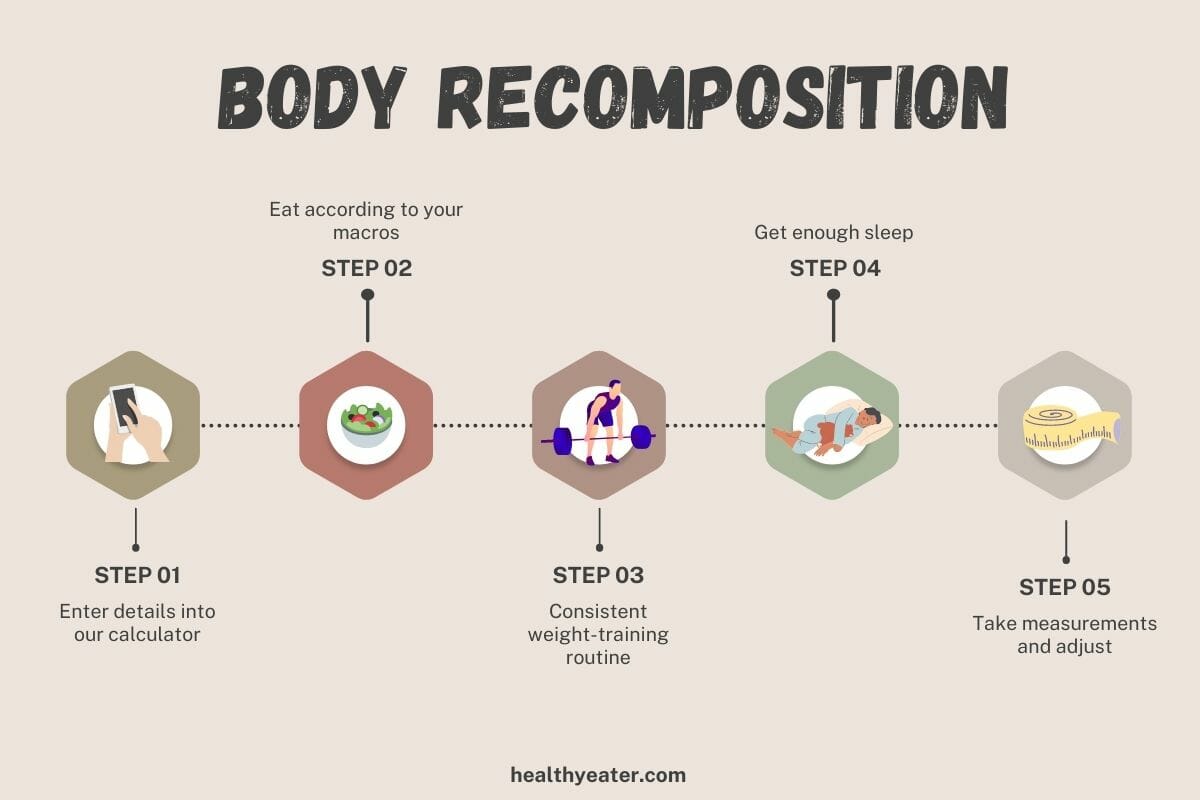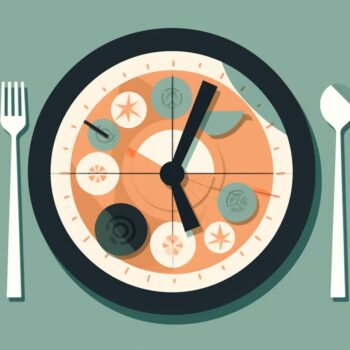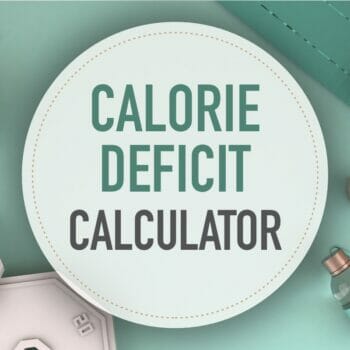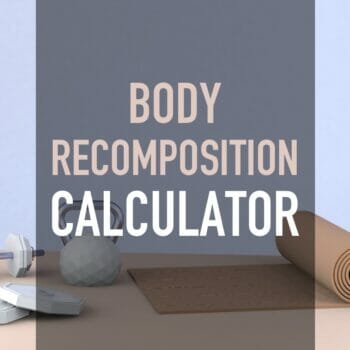Body Recomposition Calculator
Discover the perfect calorie and macro amounts for body recomp with our customizable calculator.
What is body recomposition?
Body recomposition is the process of improving your body composition by increasing muscle mass and decreasing fat simultaneously.
Favorable body composition has many health benefits and improves athletic performance.
There is ample research-backed evidence showing it is entirely achievable. However, it requires a commitment to weight training and a nutrition plan.
How to do a body recomposition
Step 1: Enter your details into the calculator
If you know your body fat percentage (calculate here), choose Lean Mass Formula and input your percentage.
The lean mass method yields better results than weight and height alone.
Step 2: Choose your recomposition goal
- If you choose More Fat Loss, there will be less muscle gain.
- If you choose More Muscle Gain, there will be more muscle gain, but probably some fat gain.
- If you choose Even – it’s a compromise between the two.
Step 3: Take note of your calories and macros
The calculator will recommend your daily calorie and macro amounts. If you’re new to macros, you’ll need to get up to speed.
You will be told how much carb, protein, and fat you must eat daily. You can adjust this to show per meal to help you get an idea.
It’s best to eat more on workout days (the increased carbs fuel your workouts) and less on non-workout days. Protein remains relatively constant throughout – muscle recovery can happen anytime.
Step 4: Stick to a consistent workout routine.
Consistent workouts are not optional for body recomposition.
Your workouts must be resistance-based, not cardio-based. Do weight-bearing exercises rather than running or walking.
As a basis, we recommend this:
- Have three weight training sessions per week.
- Minimum of 30 minutes per session.
- Focus on compound movements.
For example, squats, deadlifts, pull-ups (or lat pull-downs) – rather than bicep curls, etc. - Rest only 30-60 seconds between sets (i.e., leave your phone at home).
- Three sets per exercise, 8-15 reps per set.
Step 5: Track your macros
For the maximum chance of success, you will want to track your macros.
This can be tricky.
If you’ve got the budget, use Factor Meals, which has consistent 500-550 calorie meals. These can form the basis of daily meals, and you can then add in protein shakes to meet the required calorie amount.
Step 6: Get enough sleep
It might seem odd, but let’s quote the research:
Sleep deprivation […] seems to create an “anti” body recomposition environment, where building muscle mass and losing FM [fat mass] would be less likely.
Step 7: Measure results
Rather than using basic scales, use an advanced scale system like Renpho. This gives far more precise body recomp metrics.
How long does it take to recompose your body?

We recommend a minimum of 8 weeks.
Take measurements (fat skinfold tests, photos, etc.) weekly. You can weigh yourself – but that won’t tell you anything about your body composition.
Depending on your results, you will want to adjust your settings.
If you need help, Coach Ted has helped hundreds achieve their goals.
How much protein should I choose?
- The default option (high) is best.
- Maximum is only for those doing longer, more intense weight-lifting workouts.
- Plant-based protein is set lower: It’s challenging to meet the protein macro without carbs and fats getting too high. If you are vegetarian or vegan and okay with 1-2 protein shakes daily, use the default option.
If I do extra workouts, do I need to account for the calories?
You can account for the extra calories if you do over three weight training sessions a week.
- Track your extra calories over a week.
- Be conservative (i.e., don’t overestimate).
- Enter them into the “Additional Weekly Calories.”
The additional energy expenditure will be allocated to the overall weekly algorithm.
If you need help, use the calorie burn calculator. Remember you are looking for extra calories expended over a week.
How many calories should I eat a day for a body recomposition?
There is no one-size-fits-all here. Calories and macros for body recomposition are highly individualized.
Your biological sex, height, weight, and activity level will predict your daily energy expenditure. By making minor adjustments to this, you can begin the process of gaining muscle while losing fat mass.
The technical bits – how to calculate calories for body recomp
- Apply the Mifflin-St Jeor equation to calculate your basal metabolic rate.
- If you know your body fat percentage, use the Katch-Mcardle formula.
- Multiply BMR by 1.2 to get your maintenance calories.
- Adjust the calorie amount for training days based on the goal:
+20 % for more muscle gain and +10% for more fat loss. - Adjust calorie amount for rest days based on the goal:
-5% for more muscle gain, -15% for more fat loss. - Calculate protein amount
The default is 0.95 grams protein/lb (~2 g / kg) of body weight. Plant-based is 0.65 g/lb. - Calculate the fat amount.
Calculate fat at 30% of daily calories. - Calculate the carb amount.
All remaining calories are allocated to carbs.
Yes 🤓. That’s why we made a calculator.
Is this the same as the macro calculator?
No, there are many differences.
The standard macro calculator is aimed at people wanting to lose weight, and exercise is optional.
There are differences in both the calorie calculation step and the macro calculation step.
How much cardio for a body recomposition?
The traditional bodybuilding method involves a ‘bulk’ phase (lots of calories + heavy weights), followed by a ‘cutting’ phase (reduced calories + lots of cardio).
Body recomposition is a different process. Cardio alone (such as steady-state running or walking for 20 mins+) won’t increase muscle mass.
You should keep cardio to a minimum. However, it’s good for the heart and mental health, so don’t give up going for bike rides or walks if this is your thing.
It’s a good idea to account for the extra energy expenditure from cardio.
If you burn a lot of calories through cardio, you will not achieve the desired body recomp results. You are not doing a body recomposition!
Help! I’m not getting the desired results
- “I’m gaining some muscle but not losing fat“
Adjust calories down lower. - If your goal is Even, change it to More Fat Loss.
- Are you eating more on workout days? And less on non-workout days?
Sources
- Barakat, C., Pearson, J., Escalante, G., Campbell, B., & De Souza, E. O. (2020). Body recomposition: can trained individuals build muscle and lose fat at the same time?. Strength & Conditioning Journal, 42(5), 7-21. (full text)
- Ribeiro, A. S., Pereira, L. C., Schoenfeld, B. J., Nunes, J. P., Kassiano, W., Nabuco, H. C., ... & Cyrino, E. S. (2022). Moderate and Higher Protein Intakes Promote Superior Body Recomposition in Older Women Performing Resistance Training. Medicine and science in sports and exercise.Link
293 Comments


 Menopause Macro Calculator
Menopause Macro Calculator Intermittent Fasting Calculator
Intermittent Fasting Calculator BMI Calculator
BMI Calculator Calorie Deficit Calculator
Calorie Deficit Calculator Body Recomposition Calculator
Body Recomposition Calculator
Hi Ted,
My goal is recomposition. 43M, 5’10”, 173lbs. I’m happy with my weight, but want to change from skinny fat.
I do 3 x 45min weights – progressive overload, as best as I can. And usually do 30-40 min cardio (bike / elliptical) on the other days… sprinkling in some yoga.
From what I’m reading, is the cardio hindering my recomposition? This is the part that confuses me? I’ve been doing this routine for 6 months, seeing some muscle growth and a little change to my waistline, but not as much as I’d expect.
Thanks!
Hey F, thanks for stopping by. This is mostly a nutritional issue. It seems like you need to dial in your calories and macros a bit more to balance better the deficit to drop fat but not too much so that you can’t build muscle. I think on the workout front increasing your time on the weights to 60 minutes will help too. If you need some expert eyes on it, I can do that here: Expert Body Recomp Calculations
Hi Ted. I am trying to come up with a meal plan for weight loss and muscle building. Male 34 years old, 83 kgs, 180cm, BF% 22. Current TDEE is 3000. exercises for 3-5 times a week. For muscle gain and weight loss, would cutting down on daily TDEE to 2500 help achieve this goal? and how long should I wait before seeing changes? please help
Hi Mugo, That would be fine or you could set the calculator to “more fat loss” to be a little more specific.
Thanks. This is really helpful. What I didn’t get is, say for example my Rest day calories is coming up at 1700 and exercise day at 2100 calories for More Muscle gain.
If I take my protein at 130g (as per the recommended macro) but I keep my total daily calories say at 1250 calories i.e. cut on carbs and Fat, so shouldn’t I have a faster weigh loss (due to less Carbs and fat) but muscle again at the required rate as I have been taking required protein?
I have tried this but my I am not seeing minimal weight loss and somewhat muscle gain. Not sure why this is not working?
You’d lose muscle tissue and also slow your metabolic rate as a result so that isn’t recommended. Cut back a little (100-150 calories) if you aren’t seeing much fat loss happening.
Hi Ted I am a guy of 27 years old, height 173cm, weight 164.00 and bf% of 22 I’d like to be around 10-12% of bf, how long it gonna takes me to get that composition? I been following the plan for 6 days in row, I workout 3 days per week (strength training/none of cardio)
Hi Dan, Depending on your main focus it should take 3-6 months if you want to do it right. Also note that electronic BF% scales add 5-6% more than what visual body fat would look like so you’re probably not as far away as you may think.
Hey Ted,
Sifting through the article and comments and don’t it stated. How do you know what adjustments to make?
It makes sense to cut or add calories if you’re still gaining or losing weight. But what if you’re maintaining weight and not seeing fat/muscle gain?
Casey
Hi Casey, It can be a bit tricky to dial things in but if you aren’t seeing progress then there are other factors to consider too. One would be your weight training progression. Second would be hormonal support. Nutritionally you would have to eat less if you want fat loss to occur.
Hello, thank you for all the info. This may seem like a silly question, but is a cardio day considered a rest day?
Hi Monique, you are so welcome. Cardio is considered a workout day.
Hello Ted, I’m wondering how long you think it would take for me, a 26-year-old female who is 5.7 feet tall and weighs 121 pounds, to reduce my body fat from 25% to 19% if I follow the “more fat loss” plan.
Hi Joanne, You should see about .5 to 1 pound a week at that setting.
Hi Ted, thanks for the calculator and information. I’m a 42 yo women, 52.8 kg, 162cm, 27.6 body fat, currently eating 1300 cals a day. I do 4x 30 minutes weights and 2x 30 minutes Pilates a week also 10000 steps a day. I’ve recently lost 4kg doing a fat loss program the last couple of months but now feel deflated literally😂 because I’ve lost most of it from my bum and chest. I’d like to still lose some fat(stomach area),build muscle but add a little weight to those areas if possible.
There’s so much info out there, please help
Hi Sarah, You definitely need to be eating more than 1300 on those training days. I’d love to give you some great starting calculations so click though the offer in the calculator and fill out the form. You can also find that here: Expert Body Recomp Calculations
Hi Ted! Thank you so much for all of the information and calculations. I am familiar with food tracking, macros etc but the amount of information available these days is overwhelming.
I am 39 yo female, 133 lbs, 24.5% BF. I weight lift (progressive overload) 5 days a week, minimum 10k steps a day (predominately from walking), and do cardio 1-2x a week (moderate peloton runs usually). I am looking to lose shed some of the excess fat while also building muscle (focus on legs/glutes/back).
I am thinking the some fat loss calculation would be best?
I have been consistently at 133 with 24ish% BF for a couple months now so I definitely need to tweak something. I have been doing TDEE (1450) in myfitnesspal and adjusting slightly for exercise (usually end up around 1600-1800). There are occasions where I don’t track and definitely go over (holidays) but for the most part I am very consistent so not sure at this point what direction I should go in. I should also note that I always make an effort to hit 1g/bw of protein daily and very very very rarely miss that mark regardless of other macros.
I’m so lost…. Help!
Hi Misty, I’d start with “some fat loss” if you want to get leaner. It also seems like you may be doing too much and undereating which sometimes can cause you to spin your wheels. If you want me to evaluate everything shoot me an email. Ted@healthyeater.com
Hi, thanks so much for this. I am a 40 year old woman 5’6 162 lbs. I hit 8000 steps a day, 20 min cardio daily and 75 mins weight lifting 5 days a week. I aim for 1800 calories a day but I’m always starving at night and end up eating 2100-2300. Do you think the exercise is making me hungry like this? I also have a very low heart rate so I feel like I have a slow metabolism. My resting heart rate is 50. I’m eating healthy and hitting 159g protein a day. I really want to recomp but I need to loose body fat.
Hi Jen, If you had a slow metabolism, you wouldn’t be as hungry. The folks I’ve worked with a slow metabolism are eating 1200 calories and not feeling any hunger. I think you should eat more on the weight training days and less on the 2 you aren’t as well as making your last meal of the day about 45-50% of your daily calories.
I started doing hiit on rebounder in August along with intermittent fasting. Lost 10lbs. Decided to go to gym because my scale was saying my muscle mass was going down not up. I got a trainer for several sessions who upped my calories to 2100. Where as I was eating way under my metabolic rate. Dexa said 1231 their scan at the gym said 1400. Anyhow I have been consistently working out. I changed to 2x hiit on machines 1 set. I move my weight up if I can do more than 12. I do this in slow motion and can barely walk to the next machine once done. I also have been walking on treadmill daily for a cardio session. My waist is not getting any smaller. It’s still 40 inches. I look 5 months pregnant. I since have lowered my calories to 1650 a day to try to lose some fat in my middle. I have decided to stop the treadmill and do hiit rebounding again. Would the hiit on rebounder cause me to overtrain or can I just do that on the strength training days. Right now the plan is 2 10 min steady state sessions on the rebounder a day plus to 20 min sessions of hiit on training days. Should I also up my calories. I am tired of looking pregnant at 57 years old.
Hi Suzanne, It definitely sounds like your numbers should be dialed in some and exercise isn’t a factor here. Also there are hormonal factors that should be considered and a macro ration that’s more supportive of where you’re at. Consider having me do a nutritional assessment for you so you aren’t spinning your wheels with all of this.
Hi!
First, thank you for the calculator! I’m a 42yo woman, 60.2kg and 29% body fat. I lift heavy 3 days a week, I do hiit 3 days a week with one rest day. I aim for a minimum of 5000 steps everyday, usually get closer to 8000 but not always. My 1st, silly question is; Would hiit count as a training day?
Also, I’ve been undereating for years (1000cals), I’m currently upto 1500 cals without gaining fat. Would you suggest jumping up to the 1700ish the calculator recommends?
Thank you again!
Hi Wyn, You are welcome and so glad it was useful. Yes HIIT counts as exercise and I’d bump up to 1600 for two weeks and then go to 1700 if things look good according to the data. I’m always happy to help! -Coach Ted
Hi, I have 2 quick questions…. After you reach your body composition goals, which program (Macro or Body Comp Calc) should you use to continually add muscle slowly? What kind of calorie increase to avoid excess fat? I would like to keep adding muscle while avoiding excess fat, so I don’t have to go through the cutting stage. Thanks!
Hey Jon, So you would gradually add calories to the calories and macros you were using for recomp. Like 100 at a time and evaluate after two weeks. Keep increasing slowly until you find your personal sweet spot, which would be for lean gains.